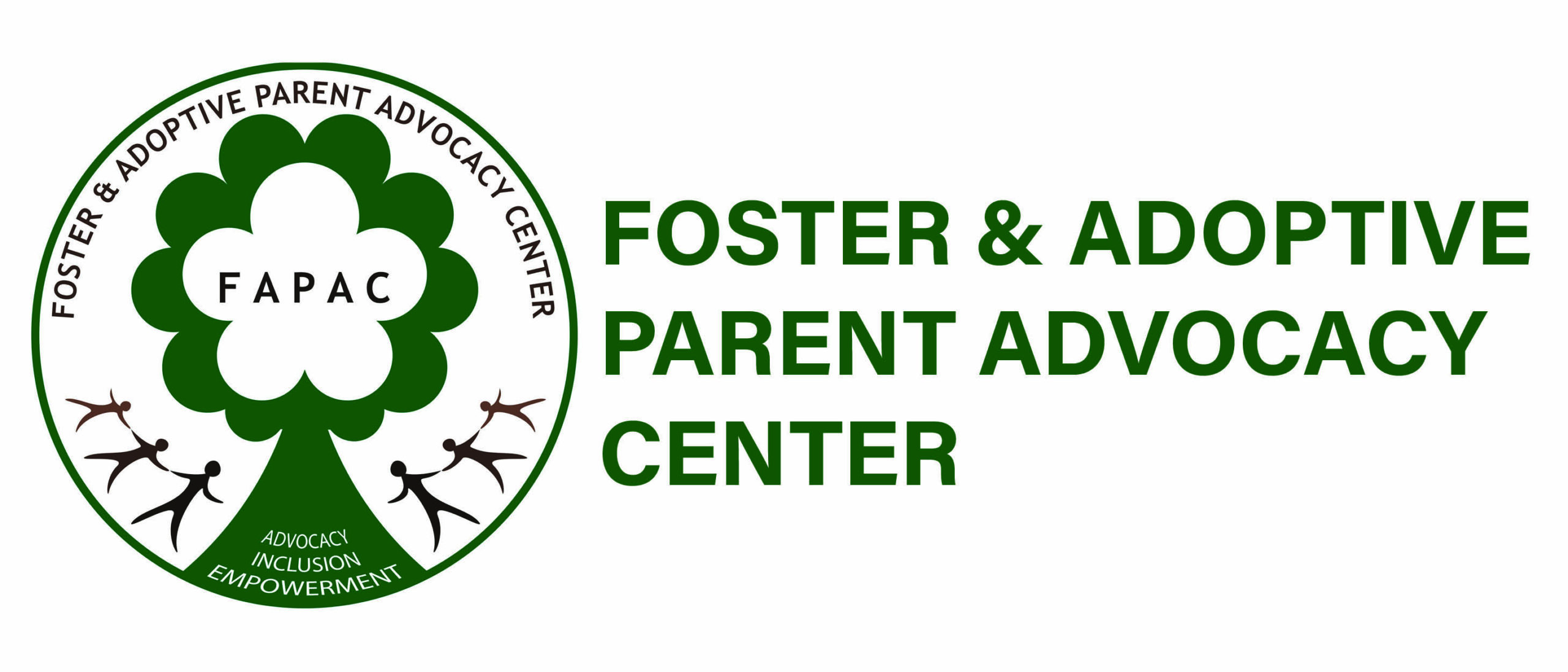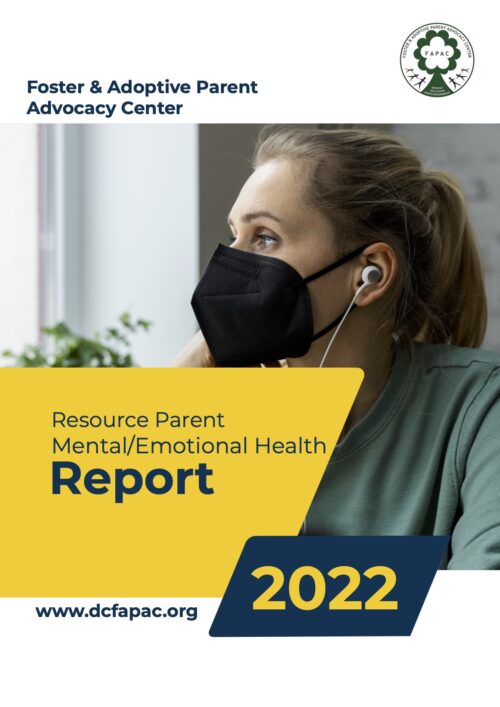By: Kate Topping, LICSW
More than two years into the COVID-19 pandemic, our society is now acutely aware of the added stressors impacting our emotional health. We may have lost loved ones, we may still have fear and anxiety about getting sick, our social support systems may be lacking, our children may have educational setbacks, and/or we may face additional financial hardships.
FAPAC Survey Reveals Unmet Emotional Health Needs
When we add the child welfare system on top of those stressors, there is a good chance that the need for emeotional health supports will increase. The data from FAPAC’s 2022 emotional health survey for Foster Parents and Kinship Caregivers shows this as well: 59.5% of respondents reported that being a Foster or Kinship Caregiver affects their emotional health to some degree, while 67.6% of respondents noted that COVID-19 has affected their emotional health to some degree. Remarkably, given all of the stressors they are faced with, 84.7% of Foster and Kinship Caregiver respondents have not declined placements due to concerns about their emotional health.
Often, caregivers experience what is called vicarious (or secondhand) trauma, when they bear witness to the effects of trauma on the children in their care. This can be overwhelming and challenging and, when not addressed, could lead to caregiver burnout. It is imperative that our Foster Parents and Kinship Caregivers have their emotional health needs met, so that they may be fully able to guide and support the children in their care. Our survey indicated that 67.6% of respondents are unaware of any emotional health support services provided by CFSA or its partners. Yet, if free and confidential emotional health support services were available to our Foster and Kinship Caregivers, 81.1% of respondents stated they would utilize them.
New Emotional Health Resource List Compiled by the FAPAC Community
One way FAPAC is striving to help meet this need is by educating Foster and Kinship families about the emotional health supports that exist already. Thanks to our survey respondents, we have compiled a list of emotional health resources that Foster Parents and Kinship Caregivers have themselves found helpful. We have also added CFSA partners and a tool for finding therapists via Psychology Today.
Improving Services to Strengthen Foster and Kinship Families
Moving forward, FAPAC’s Advocacy Committee will continue to advocate for increased emotional health services – not only for Foster Parents and Kinship Caregivers, but for all those touched by the child welfare system. In February, Donna Flenory, longtime Resource Parent of teenagers and FAPAC Board Chair, testified before the DC City Council at the CFSA Oversight Hearing to bring attention to this need. We are committed to continuing our partnerships with CFSA and other stakeholders to ensure that families have the emotional health tools they need to successfully navigate the challenges they face, and effectively care for themselves and the children in their homes.

